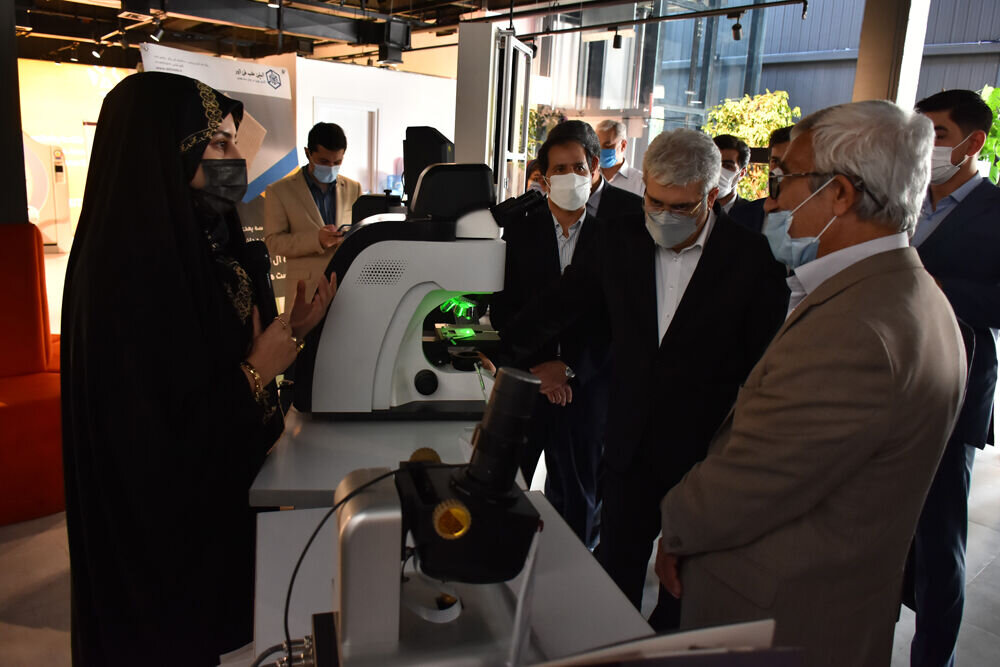Nine national macro technology projects inaugurated

TEHRAN – Nine national macro projects have come on stream with high technological complexity and strategic importance.
For the first time, knowledge-based companies have succeeded in commercializing the products in the fields of medical equipment, agriculture, and energy to meet the needs of the country, IRNA reported on Monday.
The production of these products is a step towards self-sufficiency and meeting the strategic needs of the country with the help of Iranian expertise.
Smart management of wheat silos system, a medical smartphone with the ability to process and analyze information, nanodrop spectrometer used in biotechnology, stem cells, and medicine, advanced drones to monitor foreign customs trade, smart surgery system, Mediterranean fruit fly pesticide, paper disinfectant, and three hybrid seeds are the products inaugurated during the ceremony.
Some 141 national macro technology projects have been launched across the country over the past three years until June 21, according to the Center for National Macro Technology Projects.
“National macro technology projects” are knowledge-based and technological projects with commercialization abilities, implementation of which requires the extensive cooperation of various players.
However, these projects respond to the strategic and fundamental needs of the country. Given their impact on production, self-efficacy, and job creation, these projects must be supported as important tools for the realization of a knowledge-based economy in the country.
In order to implement the national macro projects, the Vice-Presidency coordinates the government and private ministries, organizations, and units and financially supports the advancing of the projects using the budget of the Vice-Presidency and the relevant units.
The output of the national macro technology and innovation projects in the Vice-Presidency is often products manufactured in the country for the first time in a way that can solve a serious problem in a production industry.
Technology development in Iran
Despite sanctions putting pressure on the country, a unique opportunity was provided for business development and the activity of knowledge-based companies in the country.
Currently, over 7,000 knowledge-based companies are active in the country, manufacturing diverse products to meet the needs of the domestic market while saving large amounts of foreign currency.
The fields of aircraft maintenance, steel, pharmaceuticals, and medical equipment, oil, and gas are among the sectors that researchers in technology companies have engaged in, leading to import reduction.
Vice President for Science and Technology Sourena Sattari told the Tehran Times in October 2020 that “U.S. sanctions caused exports of knowledge-based companies to decline three years ago, however, it has returned to growth and is projected to reach the pre-sanctions level of more than $1 billion by the end of the current [Iranian calendar] year (March 20, 2021).
Fortunately, last year, companies achieved a record sale of 1.2 quadrillion rials (nearly $28.5 billion at the official rate of 42,000 rials), which is expected to increase by 40 percent this year.”
FB/MG
